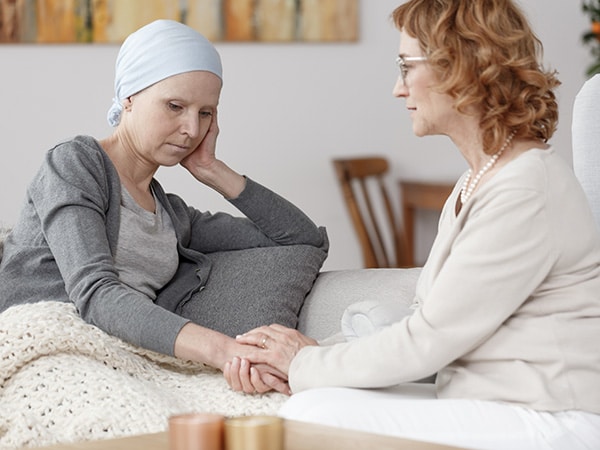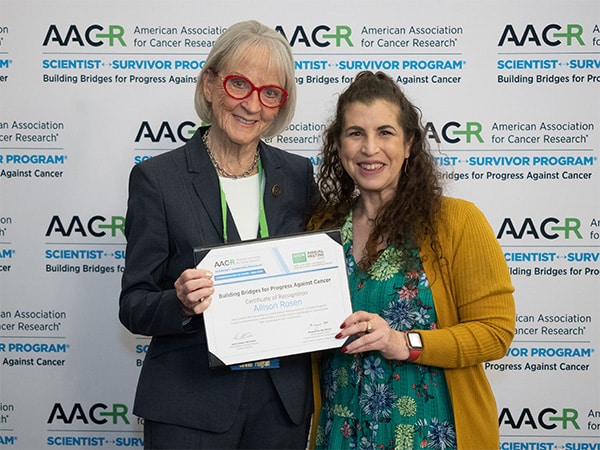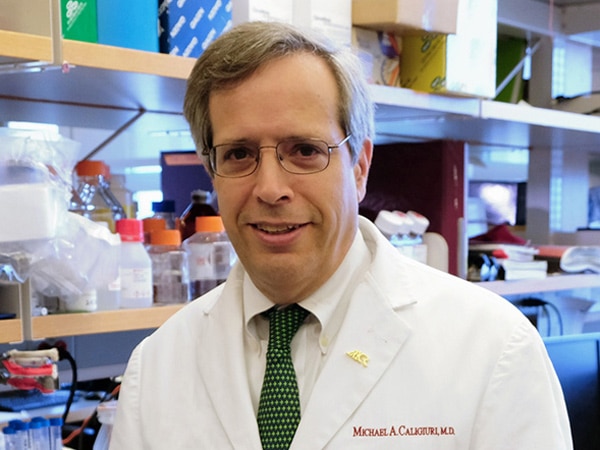Howard Brown: Living in the Moment With Metastatic Colon Cancer
For two-time cancer survivor Howard Brown, research provides hope while he lives with metastatic disease.
Howard Brown is a member of an exclusive club that nobody wants to join – he’s had cancer twice. His life as a businessman, sports fan, husband, and father has been bookended by cancer treatments and sustained by the support of his family and friends.
Non-Hodgkin lymphoma came first, striking him at the age of 24. He had chemotherapy and full-body radiation, but he credits his survival to the fact that he has a twin sister, who was a perfect match for a bone-marrow transplant.
“That saved my life and gave me 26 years of no evidence of disease, or what we used to call remission,” he says.
Then, at the recommended age of 50, Howard scheduled a colonoscopy. That’s when he was diagnosed with colon cancer.
Howard underwent surgery during which surgeons took out 13 inches of his colon. Then he had chemotherapy, followed by another surgery. Despite those treatments, the cancer metastasized to his peritoneum and the liver. Howard then had hyperthermic intraperitoneal chemotherapy (HIPEC), a procedure in which surgeons remove all the visible tumors and then bathe the abdominal cavity with heated chemotherapy in hopes of destroying any remaining cancer cells.
With such a history, Howard is constantly on guard and has CT scans every 90 days.
“I live in small pockets,” he says. “If I scan clean, I get another 90 days. If not, it’s a recurrence,” requiring more treatment.
Howard participated in clinical trials for both cancers. When he was battling lymphoma, he participated in a study of interleukin-2 to strengthen his immune system.
“It actually worked,” he recalls. “I would go in every week to charge the cartridge, and they were telling me that my blood counts were getting stronger. So it was positive reinforcement.”
Howard’s participation in a trial related to his colon cancer came to an end when he experienced metastasis, however. His wife, Lisa, and daughter, Emily, have been a huge source of support. He loves sports, so he became the manager of Emily’s soccer team.
“We spent a lot of road trips together,” he says. “We’re tight. We have been very open and transparent, so she knows everything. There’s nothing hidden.”
He’s also benefited from AACR’s Scientist↔Survivor program, attending a “mini-med school” at the AACR Annual Meeting 2019.
“Boy, that was helpful,” he says. “It broke it down into small bites, understanding all the forces at work, scientists, pharmaceutical companies, advocates, everyone that is coming together to slay this beast. I’m excited to do my part and get the word out.”
As a longtime survivor of non-Hodgkin lymphoma and a patient living with metastatic colon cancer, Howard has seen how support for patients has grown and evolved.
“My first advice is, don’t go at it alone,” he says. “There is help out there. There is support, in many different forms.”
One of these is an online community called Colontown that features over 100 chat groups called “neighborhoods.”
“I’ve found it really helpful to me. I encourage others to seek that support. I got to speak to cancer veterans that have already been down the path that I was facing,” he says. “They became what I call ‘cancer whisperers.’ They would check on me—four or five people who were dealing with it, who were in remission or had no evidence of disease or were on a good path. And I do the same now. I have several people that I sort of look after.”
Howard has been through so much that he’s learned to take the experience one step at a time.
“I know it is my job to go get the scan, and only the big guy upstairs can really determine those results,” he says. “So I get anxious, of course, that’s a natural feeling, but I have a real good collaborative relationship with my oncologist and my surgeon, and we work as a team with the family support.”
“You have a deck of cards dealt to you and you had to play the hand, and unfortunately it’s a tough one,” he says. “But at the end of the day, you band together, and we are fighting together.”




